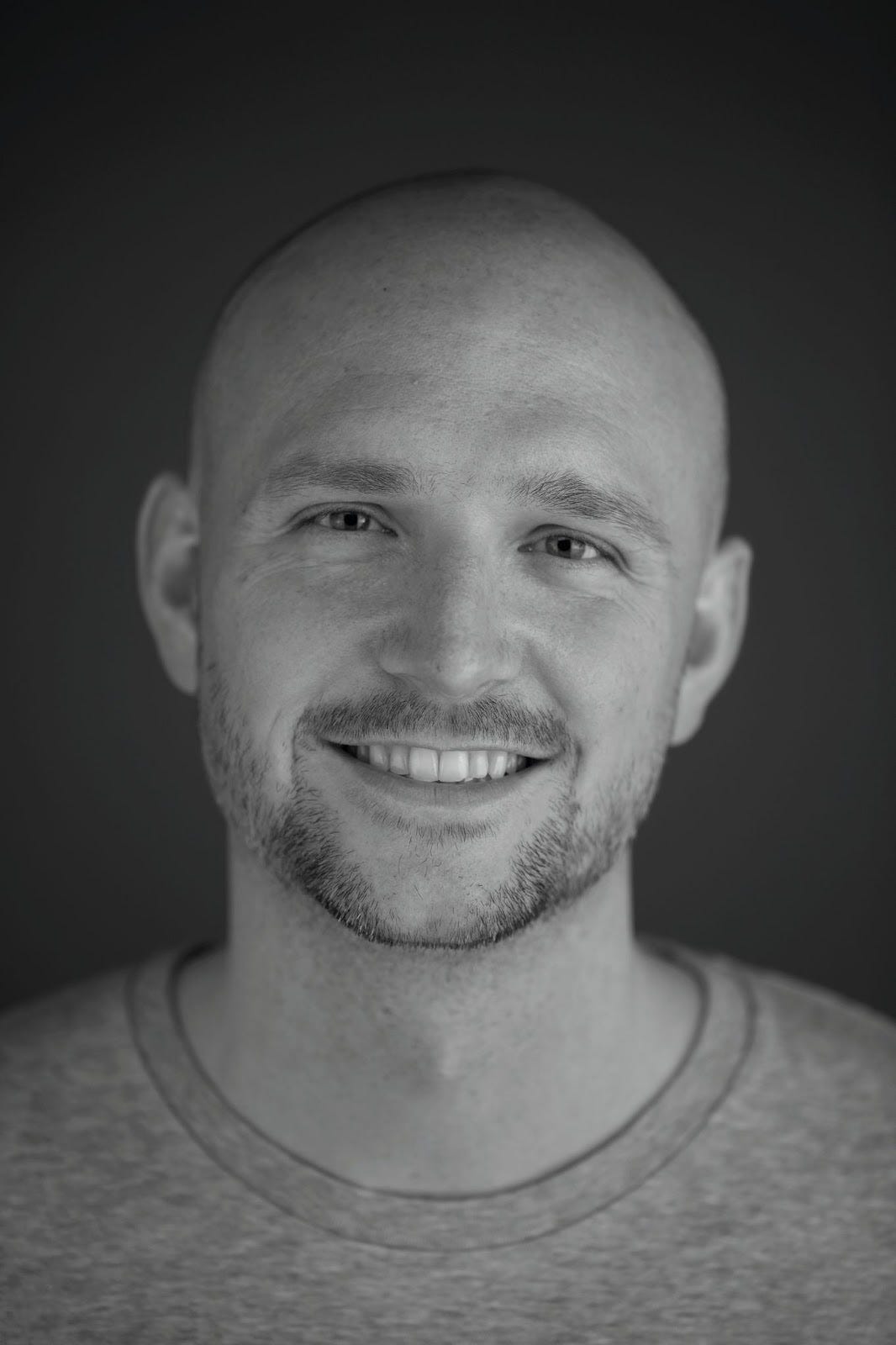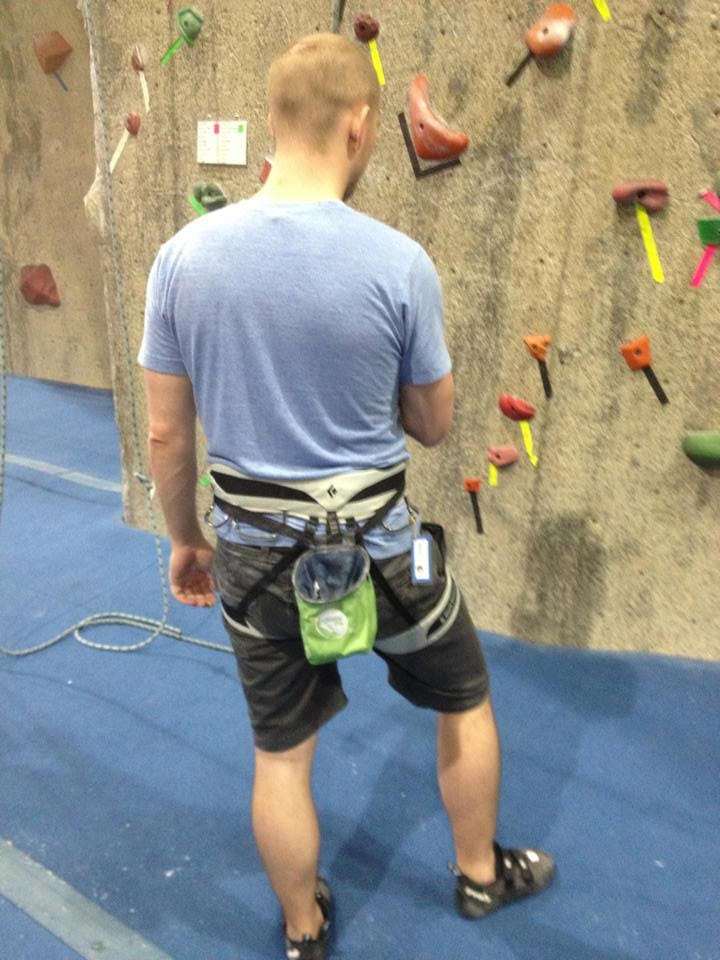$6M for Automated Eye Vision Testing: Meet Eyebot CEO Matthias Hofmann
Learn about Eyebot's automated 90-second eye vision exam kiosk and how co-founder Matthias Hofmann has been working on this problem for 15 years!
Today we spotlight a founder who leverages software beyond the screen to transform an industry. As always, each Ubiquity founder has their own nerdy background (we define nerdiness as having a deep obsession) that led to founding their startup.
Meet Matthias Hofmann, CEO/co-founder of Eyebot, a company pioneering rapid eye testing systems. This morning the company just announced a $6M seed round co-led by AlleyCorp and Ubiquity Ventures – see their TechCrunch article.
Can you sum up what Eyebot does in one sentence?
Eyebot provides automated vision tests at the point of sale in 90 seconds.
Tell us more about Eyebot.
We have a suite of technologies that allow you to receive an eye scan at the push of a button, without scheduling or planning. You can also scan your glasses to create your eyeglass prescription right on the spot, and that allows you to then buy and purchase glasses wherever that technology is. We’re really simplifying and streamlining the entire process; what used to take days or weeks for people to accomplish by getting an in-person exam we can now do in a matter of seconds.
The vision care industry is too cumbersome and outdated. It’s leaving a lot of people out of the fold, and they're not checking their eyes as frequently as they should. On top of that, there simply are not enough doctors in the United States to give every person an annual vision exam - it’s just not possible. What we're doing is making vision tests accessible everywhere to everyone regardless of race, income, and socioeconomic status. We treat everything equally, and we aim to price it in such a way that there are no blockers for people, which is an entirely new approach.
That really is the ethos of the mission of Eyebot: we make vision care accessible to all. And that is surprisingly not the case, even in the United States. Two billion humans on this planet walk around with blurry vision, and in the United States alone, 30 million Americans walk around with blurry vision - that's 1/10th of the population. This is really a consequence of the industry and of the way we still handle vision care; it's a model that is outdated and 100 years old. We are introducing a new way that is fully automated, which is inevitable.
What is the story behind the founding of Eyebot?
Ten years ago, I was an early engineer at a company called EyeNetra, and we were the first smartphone-based vision exam technology to reach the market. In around 2011, there was a new era of smartphones that came into the market with Samsung and Apple, and the big question was: now that everybody has smartphones, what can we do with that? Can we solve this issue that everybody has with getting their vision exam done?
Ultimately the company didn't work out as we hoped. The problem people have with automation is that they want an interface that is as simple as pushing a button and having everything happen for them. That’s what we’re doing at Eyebot - we're essentially solving the interface problem.
How did you notice the need for rapid eye testing systems?
The big problem is that the only way to get glasses or contact lenses is through an in-person exam, because you require those numbers that allow the optician to make the glasses or contact lenses for you. It’s a problem for both consumers and retailers - the consumer can't walk out with the product and retailers can't sell their product because people walk in without a prescription.
The way to solve this bottleneck is to essentially eliminate the need for an in-person exam, and then make the technology and interface extremely easy and accessible for people. We tested in shopping centers and found that there's a tremendous amount of need for this; 22% of our users in shopping centers who used our self-serve unit had never had an exam in their life. This is incredible, because these are not just 16-year-old kids - these are 30, 40, 50-year-old people that have never had an exam. It's not just that we're solving the prescription problem, we're also making vision care accessible everywhere in just a matter of seconds.
How do you know customers love your product?
There are two sides of the coin: one is we're solving a problem for consumers, but we're also solving a problem for our big brands and retailers. There’s a very clear signal that we have from the big brands and from the enterprise sales side. And those are essentially our customers - they pay Eyebot to use our services, platform, and technology so that they can reach their audience or consumers.
We’re working with some of the biggest players in the optical utility industry, and there’s been no shortage of demand. We're the only company that allows them to do brick and mortar eyeglass solutions without actually opening a full store.
When did you first get into this particular area of rapid eye testing technology?
About 10 years ago is when we got into smartphone-based vision exams, and I learned a ton there. We got a lot of great user feedback confirming that we were solving a huge problem, but we weren’t solving it the right way. That has always stuck with me throughout my career; it was marinating in my head for a long time and I had a chip on my shoulder about it.
In 2021, I got back together with my former co-worker Jack Moldave, and we decided to solve this problem. Eyebot is what evolved out of essentially a startup from 10 years ago that had the right idea and the right intention, but we just didn't do it the right way.
Did you experience any identity-forging moments as a kid?
I grew up in Switzerland, and there are certain requirements to become a fighter pilot there (yes, Switzerland has fighter jets, believe it or not). My childhood friends and I would joke on the playground about what we wanted to be as adults, and we all essentially wanted to be fighter pilots.
Now, in my case, at around age 12 my vision had already begun to worsen, and the other kids would laugh about it because I clearly wouldn’t be able to become a fighter pilot. I was the only one out of the five kids in this group experiencing vision problems, and I’ll always remember that moment. Prescriptions, doctors, and all of the related numbers have been circling in my mind ever since. It’s interesting that I am now trying to solve this problem with the fantastic team here at Eyebot.
At Ubiquity, we think of nerds as people who are obsessed with something. What are you nerdy about or obsessed with inside and outside of work?
Our team at Eyebot is obsessed with eyes. We are uniquely knowledgeable about eyes on an anatomical level, but also on a technology level. We understand the variety of technologies that exist and have existed with regards to scanning eyes and moving vision tests in eye exams, and we work very closely with optometrists and ophthalmologists. We’re probably one of less than four groups on this planet that can actually solve this problem in the way we're doing it, and it's a very rare combination of skills and knowledge that we have. And it’s because we're exceptionally nerdy about eyes and all the physics and engineering around it.
Outside of work, I have three young kids (and Eyebot is sort of my fourth kid). And on the sports side, I do love indoor and outdoor climbing.
What would you tell your past self if you could give them advice?
Make sure to validate your ideas as quickly as possible using as few resources as possible. Get clever with testing them. Talk to as many people as possible, and not just your friends - they’re too nice. Don’t get hurt when your ideas get shot down - learn from it. There are important learnings and truths from that feedback. Be open to the fact that your initial vision and ideas are probably going to change a lot by the time it hits the market.
What’s your advice to budding technical founders who haven’t yet taken the leap to launch their new company?
Just do it. There's no right recipe, and too much planning will just block you. Just do it! People overthink, they overplan, they think that one day the right time will come, and they have all sorts of excuses for not starting just like I did for many years. It’s never the right time. I started with three small kids - financially and logistically the worst possible time to start a company. But you’ve got to treat it like a job, so just start and work on it piece by piece until you can look back and say wow, I’m actually doing it!
Ubiquity Ventures — led by Sunil Nagaraj — is a seed-stage venture capital firm focused on startups solving real-world physical problems with "software beyond the screen", often using smart hardware or machine learning.
If your startup fits this description, fill out the 60-second Ubiquity pitch form and you’ll hear back shortly.





